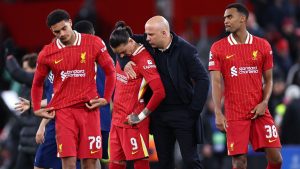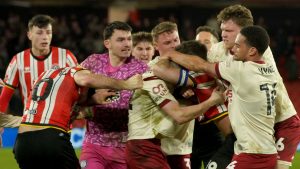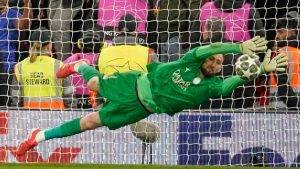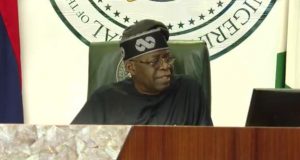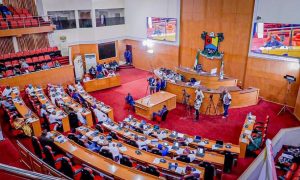Anfield’s next expansion more substantial than 1st planned
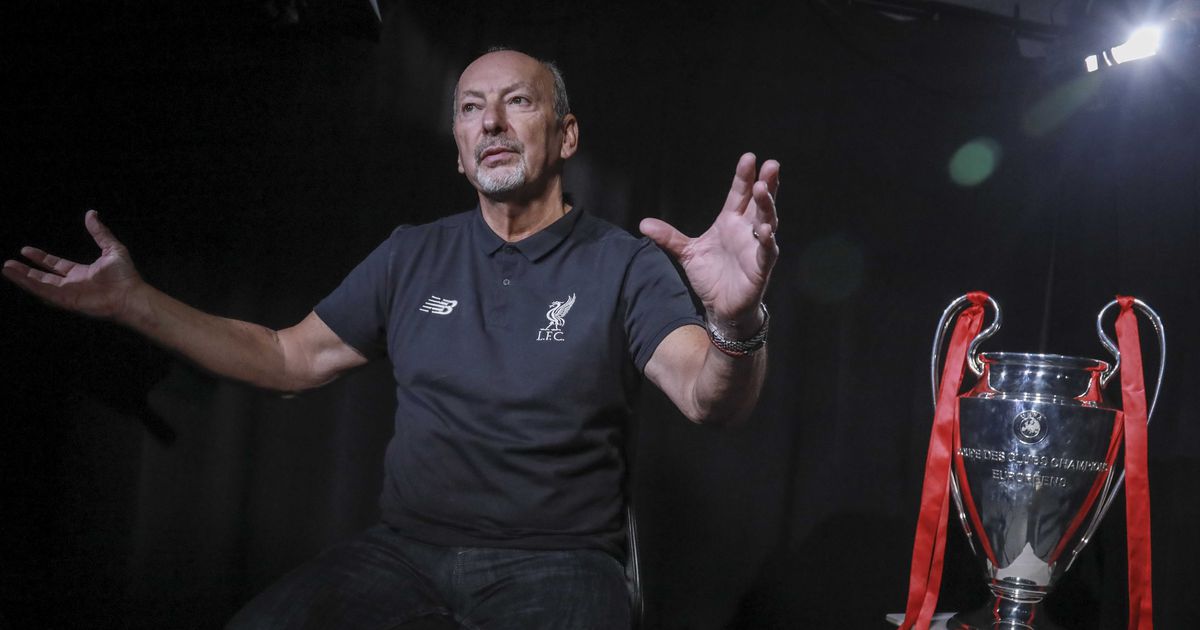
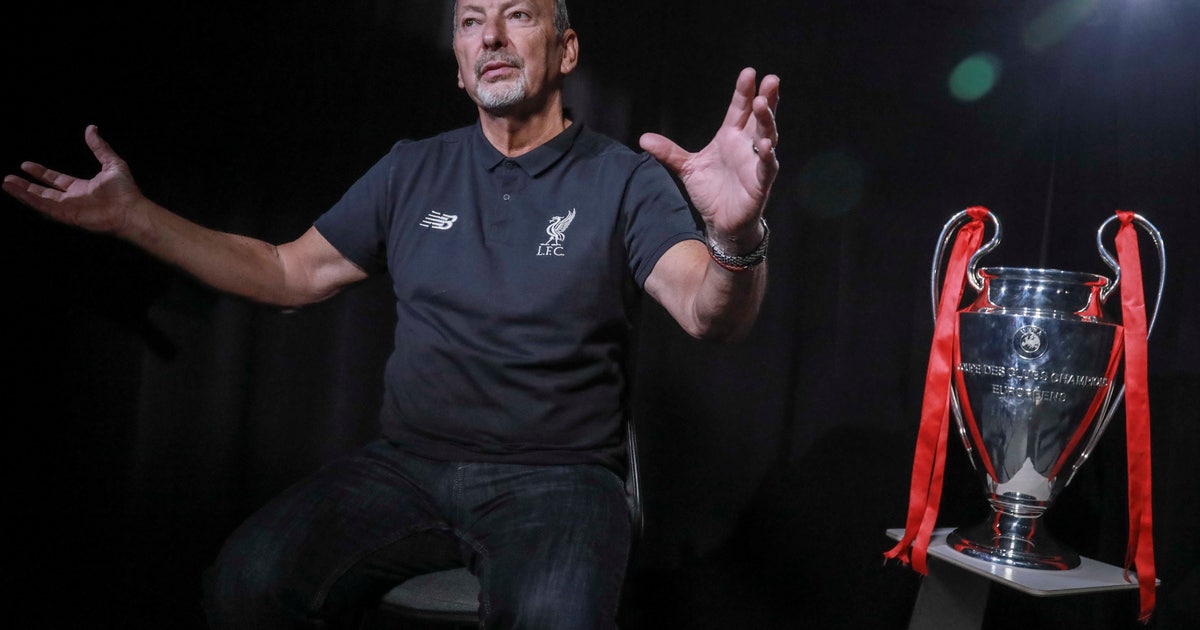
NEW YORK (AP) — The next proposed expansion of Anfield will be more substantial than initially envisioned.
Capacity at Liverpool’s stadium rose by about 8,500 to approximately 54,000 with the opening of a new Main Stand for the 2016-17 season. Chief executive Peter Moore, during an interview Wednesday at the headquarters of The Associated Press, said the permit allowing an expansion of about 4,000 to the Anfield Road end will be allowed to expire in September.
“That is insufficient for our plans. We’re continuing to analyze what is the optimum number,” he said. “I think in the next few months you’re going to hear from us as regards to what those plans will be. I can tell you definitively it won’t be the rather small-to-medium plans we had recently.”
Moore said the club faces challenges because the stadium is in a residential area, and it plans to work with the City Council and neighborhood groups. Liverpool has frozen ticket prices for four straight seasons.
“You just can’t build this massive stadium without limits here. We’re very cognizant of the impact we have on the residents,” he said. “The ability to get people into a ground and get them out of the ground is important as well as the size of what we’re building.”
Coming off its sixth European title, Liverpool is in New York to complete a three-match U.S. preseason tour against Sporting Lisbon on Thursday at Yankee Stadium following games at Notre Dame Stadium and Boston’s Fenway Park. The club also brought along its women’s team, which played a pair of friendlies, and has three camera crews generating constant content.
Liverpool was bought in 2010 by what is now known as Fenway Sports Group, owner of the Boston Red Sox and headed by John Henry, Tom Werner and Michael Gordon. The Liverpool-born Moore, who worked previously at Reebok, Microsoft and Electronic Arts, was hired in 2017 and reports to Gordon. He sees Henry’s impact.
“John has been incredibly helpful in applying the mentality of the Red Sox as regards to data, analytics, science, really making us a world-class operation in those areas, when we look at player identification, recruitment, maintaining player talent,” Moore said.
Liverpool has 12.1 million followers on its English-language Twitter feed, fourth behind United (19.8 million), Arsenal (14.6 million) and Chelsea (13.1) and well ahead of City (7.1 million) and Spurs (3.6). Among other European powers, Barcelona’s English feed has 30.3 million followers, Real Madrid 10.6 million, Juventus 1.5 million and Paris Saint-Germain just 269,000.
“A lot of entities — sports clubs, celebrities — have lots of followers but don’t have the levels of engagement,” Moore said. “I want to engage you and then ultimately have you be part of our growth through the monetization of your support.”
Much of the Premier League’s U.S. popularity is due to NBC. The network acquired Premier League rights starting with the 2013-14 season from Fox, and NBC made all 380 matches per season available. It hired announcers with deep Premier League knowledge, set up shoulder programming and took coverage on the road rather than rely primarily on the international feed.
Liverpool averaged 567,000 viewers for its matches on NBC and NBCSN last season, second only to 626,000 for Manchester United and ahead of Arsenal (538,000). Chelsea (534,000), champion Manchester City (479,000) and Tottenham (443,000).
“They finally said somebody is not going to talk down to American soccer fans, somebody isn’t going to in mid-broadcast try to explain what a corner kick is,” Moore said. “They made a statement Fox really never did. What the Premier League wanted was a partner not only that would obviously write a check but also would make a statement about the Premier League in this country.”
Chelsea’s U.S. following is likely to receive a boost following the acquisition of 20-year-old midfielder Christian Pulisic.
“I think American fans are more sophisticated than just following a player. Does it help? You bet it helps,” Moore said. “Having said that. American fans now, their level of sophistication, their understanding of the game, they want to watch an entertaining game of football. In our case, they like watching a Senegalese, an Egyptian, a Brazilian up front. There are days we can put a team out that doesn’t have an Englishman on it. Football doesn’t think in those terms anymore, doesn’t think nationalities.”
Britain’s possible departure from the European Union could create challenges for the league, which took advantage of the 1995 European Court of Justice decision involving Belgian midfielder Jean-Marc Bosman to sign many top players from throughout the EU.
“Brexit then would create some uncertainty as to which players you could get, what visas they may now need, if they’re a certain level,” Moore said. “The UK government through the Premier League has been very supportive of making sure we do have freedom of movement so that the Premier League can maintain this great standard that it has and the diversity that it has.”
Seeking its first English title since 1990, Liverpool opened a nine-point lead in late December but stumbled and finished two points behind City. Manager Jürgen Klopp has fostered a team chemistry that melded a roster headed by Mohamed Salah, Roberto Firmino and Sadio Mané into a world power.
“It’s a city that’s founded on socialism. It’s a somewhat activist city that strikes out against things it sees wrong. They demand the Liverpool way and the style of football that was built back in the 60s by Bill Shankly — pass and move, pass and move, pass and move, still is present today,” Moore said. “That’s what our fans expect. They don’t like superstars, per se —and we’ve had plenty of them. But you can go back in the annals of our history to a Kevin Keegan, a Kenny Dalglish, an Ian Rush, a Robbie Fowler, a Steven Gerrard, and they’re all in it together. As Shankly says, my idea of socialism is everybody pulling together for the same objective.”


